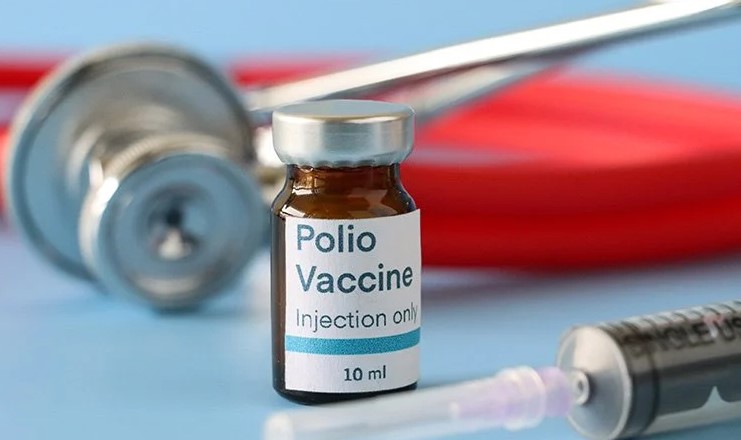Study reveals rapid vaccination slashed epidemic deaths by 60 per cent

Emergency vaccination campaigns have reduced deaths from major infectious disease outbreaks by nearly 60 per cent since 2000, a new study published in the British Medical Journal (BMJ), Global Health, has revealed.
The study, carried out by Gavi, the Vaccine Alliance, in collaboration with Australia's Burnet Institute, analysed 210 outbreaks across 49 low-income countries over 23 years.
It shows that the quick deployment of vaccines during outbreaks of cholera, Ebola, measles, meningitis and yellow fever significantly reduced both infection rates and fatalities.
The biggest gains were seen in yellow fever and Ebola. According to the study, emergency vaccination initiatives have reduced yellow fever deaths by 99 per cent and Ebola fatalities by 76 per cent.
Measles, one of the most contagious viruses in the world, also saw significant reductions with cases dropping by 59 per cent and deaths by 52 per cent during outbreaks where emergency vaccines were deployed.
Cholera cases and deaths similarly fell by 28 per cent and 36 per cent, respectively, according to the study, while meningitis outbreaks saw a 27 per cent drop in cases and a 28 per cent reduction in fatalities over the last decade.
"For the first time, we can comprehensively quantify the benefit, in human and economic terms, of deploying vaccines against outbreaks of some of the deadliest infectious diseases," said Sania Nishtar, CEO of Gavi.
"This study demonstrates the power of vaccines as a cost-effective countermeasure to the increasing risk the world faces from outbreaks."
The study also found that emergency vaccinations during the 210 outbreaks studied delivered economic benefits worth nearly $32 billion (Sh4.1 trillion), mostly from averted premature deaths and years lost to disability.
According to the World Health Organisation (WHO), vaccines have saved an estimated 154 million lives since 1974, equivalent to six people every minute for the last five decades.
Measles vaccines alone account for 60 per cent of lives saved through immunisation, while more recent vaccines against malaria, HPV, cholera, dengue, meningitis, RSV, Ebola, and mpox are helping protect people of all ages.
Despite this progress, millions of children still miss out on essential vaccines each year.
The study, carried out by Gavi, the Vaccine Alliance, in collaboration with Australia's Burnet Institute, analysed 210 outbreaks across 49 low-income countries over 23 years.
It shows that the quick deployment of vaccines during outbreaks of cholera, Ebola, measles, meningitis and yellow fever significantly reduced both infection rates and fatalities.
The biggest gains were seen in yellow fever and Ebola. According to the study, emergency vaccination initiatives have reduced yellow fever deaths by 99 per cent and Ebola fatalities by 76 per cent.
Measles, one of the most contagious viruses in the world, also saw significant reductions with cases dropping by 59 per cent and deaths by 52 per cent during outbreaks where emergency vaccines were deployed.
Cholera cases and deaths similarly fell by 28 per cent and 36 per cent, respectively, according to the study, while meningitis outbreaks saw a 27 per cent drop in cases and a 28 per cent reduction in fatalities over the last decade.
"For the first time, we can comprehensively quantify the benefit, in human and economic terms, of deploying vaccines against outbreaks of some of the deadliest infectious diseases," said Sania Nishtar, CEO of Gavi.
"This study demonstrates the power of vaccines as a cost-effective countermeasure to the increasing risk the world faces from outbreaks."
The study also found that emergency vaccinations during the 210 outbreaks studied delivered economic benefits worth nearly $32 billion (Sh4.1 trillion), mostly from averted premature deaths and years lost to disability.
According to the World Health Organisation (WHO), vaccines have saved an estimated 154 million lives since 1974, equivalent to six people every minute for the last five decades.
Measles vaccines alone account for 60 per cent of lives saved through immunisation, while more recent vaccines against malaria, HPV, cholera, dengue, meningitis, RSV, Ebola, and mpox are helping protect people of all ages.
Despite this progress, millions of children still miss out on essential vaccines each year.
Let’s Connect
We’re here to listen, support, and engage with you.
Whether it’s feedback, a request, or collaboration — Hon. Jalang’os team welcomes your message.
Office Address
Langata Constituency Office, Nairobi
Call
+254 722 400 737
“Leadership is not about position — it’s about purpose, people, and progress.”